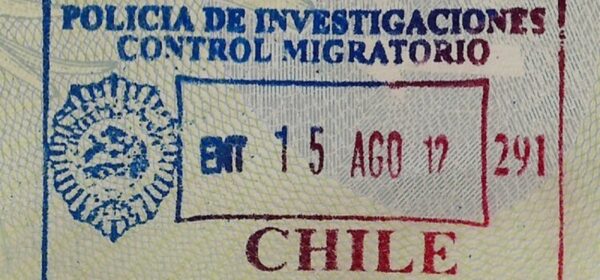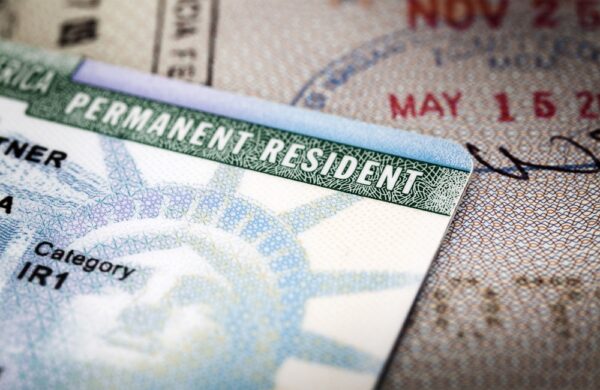Dreaming of working amidst Switzerland’s breathtaking alpine landscapes and thriving economy? Whether for fun or as a career transition, navigating Switzerland's immigration policies can be the ticket to getting into some of the most thrilling and competitive job markets in the world. It is an ideal location for skilled professionals looking for excellent standards of living, infrastructure, and innovation-focused industries. Obtaining a Switzerland work visa is the first step toward making this picturesque country your professional home, regardless of your attraction to its global financial hubs or renowned pharmaceutical sector. Switzerland is welcoming with its skilled migrant policies and complex paperwork which ensures a smooth start for aspiring employees willing to migrate. Get ready to turn your Swiss dream into a reality!
Who Needs a Switzerland Work Visa?
For EU/EFTA Citizens: Due to Switzerland's free movement agreements with the EU and EFTA, individuals from those nations are able to enter Switzerland without a visa and remain there for a maximum of three months. They must, however, apply for the necessary authorization if they plan to work in Switzerland for more than three months. Specifically, a residency permit that permits employment.
Therefore, EU/EFTA nationals must apply for a residence permit to enter Switzerland, even if they do not need to apply for a work visa from their home country. Nevertheless, EU/EFTA citizens have an easier time obtaining a work and/or residency permit than their non-EU/EFTA counterparts. That is because Switzerland has no quotas for the number of EU/EFTA immigrants it accepts.
For Non-EU/EFTA Citizens: Citizens of non-EU/EFTA nations always require a work and residence permit, regardless of the duration of their stay. You must register within eight days of your arrival in Switzerland at the municipality's citizens' registration office. Only qualified citizens of non-EU or EFTA nations may be allowed entry into Switzerland for gainful employment.
Qualified individuals include managers, experts, and other professionals with credentials, especially university graduates with years of work experience. The Swiss employer must ensure that a foreign employee has the required authorization to be hired. The company must also demonstrate that it was impossible to get a competent employee for the post in Switzerland or in the EU/EFTA nations and that training a qualified employee was not feasible in a timely manner.
Eligibility Requirements for Swiss Work Visa
Switzerland has strict requirements for foreign nationals who are allowed to work there. The prerequisites for obtaining a work permit are as follows:
- You have a university degree, years of professional experience, and specialized knowledge, and also a competent and highly skilled worker (manager, specialist).
- You have been offered a job
- Swiss citizens and EU/EFTA nationals are not available for the position.
- The job offers the same pay and benefits as if a Swiss national held it.
- Work permit quotas aren’t full.
Authorities in Switzerland may consider a foreign worker's criminal history, financial status, and multilingualism (German and French are among Switzerland's official languages), especially if the qualified worker is not from the European Union or EFTA.
Types of Switzerland Work Visas
Work and residency permits are equivalent in Switzerland because you cannot work there without a residential permit. Foreign nationals can reside and work in Switzerland under one of four types of permits:
Permit L
This permit is designed for foreign nationals who plan to stay in Switzerland for less than a year. EU/EFTA nationals who have a three—to twelve-month job contract are eligible for this permit. The duration of the employment contract is the same as the validity of the permits. Permit L can be issued to job seekers who don’t currently have a profitable job.
Permit G
This will serve cross-border commuters, that is, EU/EFTA citizens who work in Switzerland but live in another EU/EFTA country. The work may be self-employment or with a firm. Cross-border commuters must visit their primary residence at least once every week. This permit has a five-year validity. However, if the work contract is for a year, then it’s valid for the same duration.
Permit B
Foreign nationals who want to stay in Switzerland for more than a year are eligible for this permit. It is granted if the foreign national has an employment contract that is either open-ended or for a minimum of twelve months. It is possible to extend this permit for an additional five years after its initial five-year validity. The visa renewal will only be valid for a year if you have been unemployed for twelve months in a row when you first apply for it. A B permit is granted to citizens of all EU/EFTA member states who are unemployed and can demonstrate that they have enough money and health and accident insurance.
Permit C
C permits, often called settlement permits, are given to people who have lived and worked in Switzerland for ten years (five years if they are residents of the United States or Canada).
Documents Required for a Switzerland Work Visa Application
- A valid and original passport
- A completed long-stay visa application form
- Passport photos
- Proof of professional qualifications
- Job contract
- Copies of qualifications like certificates and diplomas
- Proof of health insurance
- CV/Resume
- Details about previous education
Note that the necessary paperwork may vary depending on the country. The Swiss authorities maintain the right to request any more documents they think are required.
How to Apply for a Switzerland Work Visa
The following steps are involved in the process of getting a Swiss work visa:
Find a Job
In Switzerland, finding a job could seem like an overwhelming task. But there are ways to do it. You might have already received an offer from someone, so you don't need to seek employment actively. But if you don't have a job offer in Switzerland, using a recruiting agency is one of the simplest ways to find an opening that suits you.
Foreign nationals might use international recruiting services to find jobs in Switzerland that match their skills and expertise. They are familiar with the local job market and may offer you advice on how to land the job, as well as assistance with your CV, interview, and job application. Additionally, you might hunt for jobs online using job ads or get in touch with a local Swiss recruitment firm. You can look for work in any way that suits you, but the main criterion is that you must have a job before applying for a Swiss work visa.
Gather the Necessary Documents
You must schedule an appointment at the Swiss embassy or consulate in your country in order to apply for a work visa. There is a non-refundable visa cost and an in-person application requirement. You must submit your documentation in triplicate. Translation is required for documents not in English, French, Italian, or German.
Apply for the Work Visa
Before this, your employer must have applied for your Swiss residence permit. The rest of the application process is as follows:
- You must apply for a Swiss work visa (sometimes called a national visa or a long-stay visa) from your home country. Most non-EU/EFTA nationals must get a long-stay (national) visa to enter Switzerland. You can apply for a work visa at the Swiss embassy or consulate in your home country.
- The FOM notifies your employer, you, and the cantonal agencies of their decision regarding your residence permit. The cantonal offices inform the Swiss embassy or consulate if the FOM grants your residency permit.
- Your Swiss work visa will be given to you by the Swiss embassy or consulate in your home country.
- The local cantonal migration offices give you 14 days from the time you enter Switzerland to register at the Residents' Registry Office.
- Once you get your Swiss residency permit, you can live and work in Switzerland.
Swiss Work Permit Fee
The actual cost varies by canton, but expenses are around $100. Your work visa application takes about eight to twelve weeks to process.
Switzerland Work Visa Renewal
You should apply for a new work permit from the cantonal authorities not more than two weeks before the expiration of your present permit. If an employer is transferring the employee to work at a branch in another canton or if they are moving, they must submit an application to that canton's immigration office to find out the requirements.
Work Visas for Family Members
Family members who enter Switzerland on a family visa have the same employment rights as the relatives they are joining. First, they have to register with the cantonal labor market and immigration authorities. Family members can only join Swiss residents who hold a C settlement permit. Children, grandkids, parents, grandparents, and spouses or partners may join holders of EU/EFTA permits. Additionally, spouses who enter have the option to work for themselves in Switzerland.
The only people who can join third-country C permit holders are spouses or partners and children under the age of 18. Spouses are granted the right to work or self-employment. Family members are not automatically permitted to join those with B or L residency permits. They also can't join the self-employed. However, in some situations, wives and dependent children may be permitted by the cantonal authorities.
Conclusion
Getting a work visa for Switzerland requires meticulous preparation and adherence to rules. Switzerland provides appealing chances for international workers due to its robust economy, innovative industry, and high level of living. Securing employment with a Swiss company is key, making the visa process worthwhile for those who successfully navigate the requirements.
















